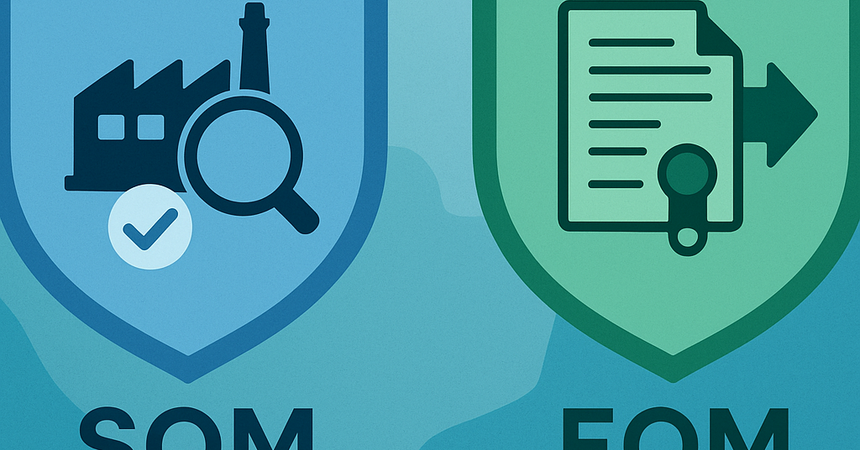The role of audits in the SQM system
The Saudi Quality Mark (SQM) requires a mandatory factory audit as a core part of the certification process. This reflects Saudi Arabia’s strong focus on strict quality and safety control for imported products. Audits ensure that all production stages comply with SASO standards, covering raw material sourcing, manufacturing processes, and final product inspections. This rigorous approach minimizes the risk of defective products entering the market and builds high consumer trust.
Why EQM often relies on documentation only
The Emirates Quality Mark (EQM), in contrast, is primarily based on a review of submitted documents and laboratory test results. In the UAE, the focus is on facilitating fast product entry and supporting foreign trade. Instead of factory audits, ESMA (Emirates Authority for Standardization and Metrology) often relies on certificates, test reports, and technical specifications. This approach reduces costs and shortens the certification timeline.
Advantages and disadvantages of mandatory audits
Audits, as required for SQM, enhance transparency and reduce the risk of non-compliance, but they demand significant resources — time, money, and operational effort. Companies must also be ready for follow-up inspections. Meanwhile, EQM offers more flexibility and budget savings but shifts full responsibility for product conformity onto the applicant.
Choosing the best approach for your business
If your priority is maximum consumer trust and regulatory approval in Saudi Arabia, you should be prepared for full audits and stricter checks. For the UAE market, a faster, audit-free certification route may be sufficient. In both cases, preparing proper documentation and evaluating your production readiness in advance are crucial to success.
If you want to pass SQM or EQM certification without risks and delays, contact WorldWideBridge. We help you prepare documents, handle audits, and obtain certifications quickly and smoothly. Full turnkey support!
